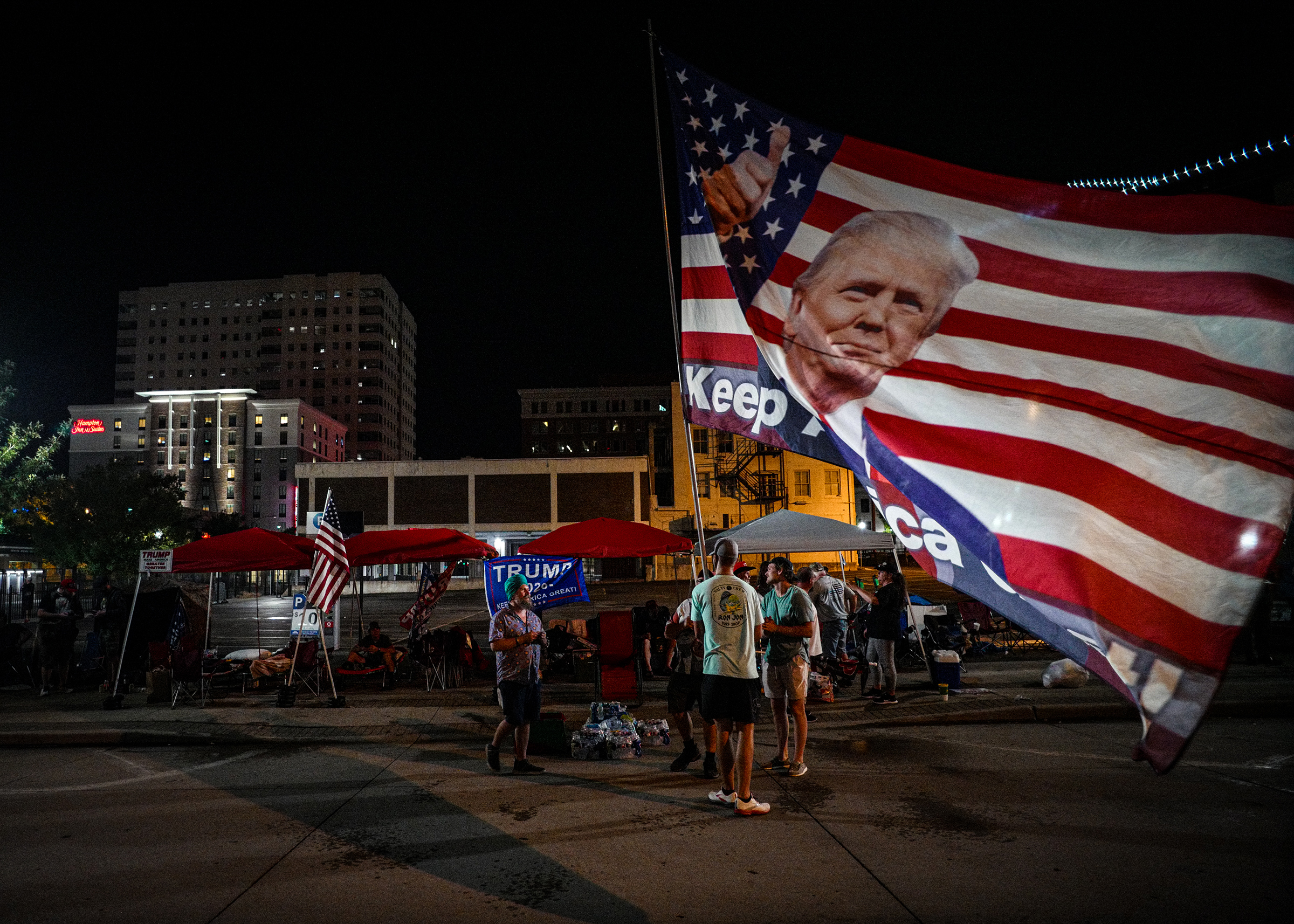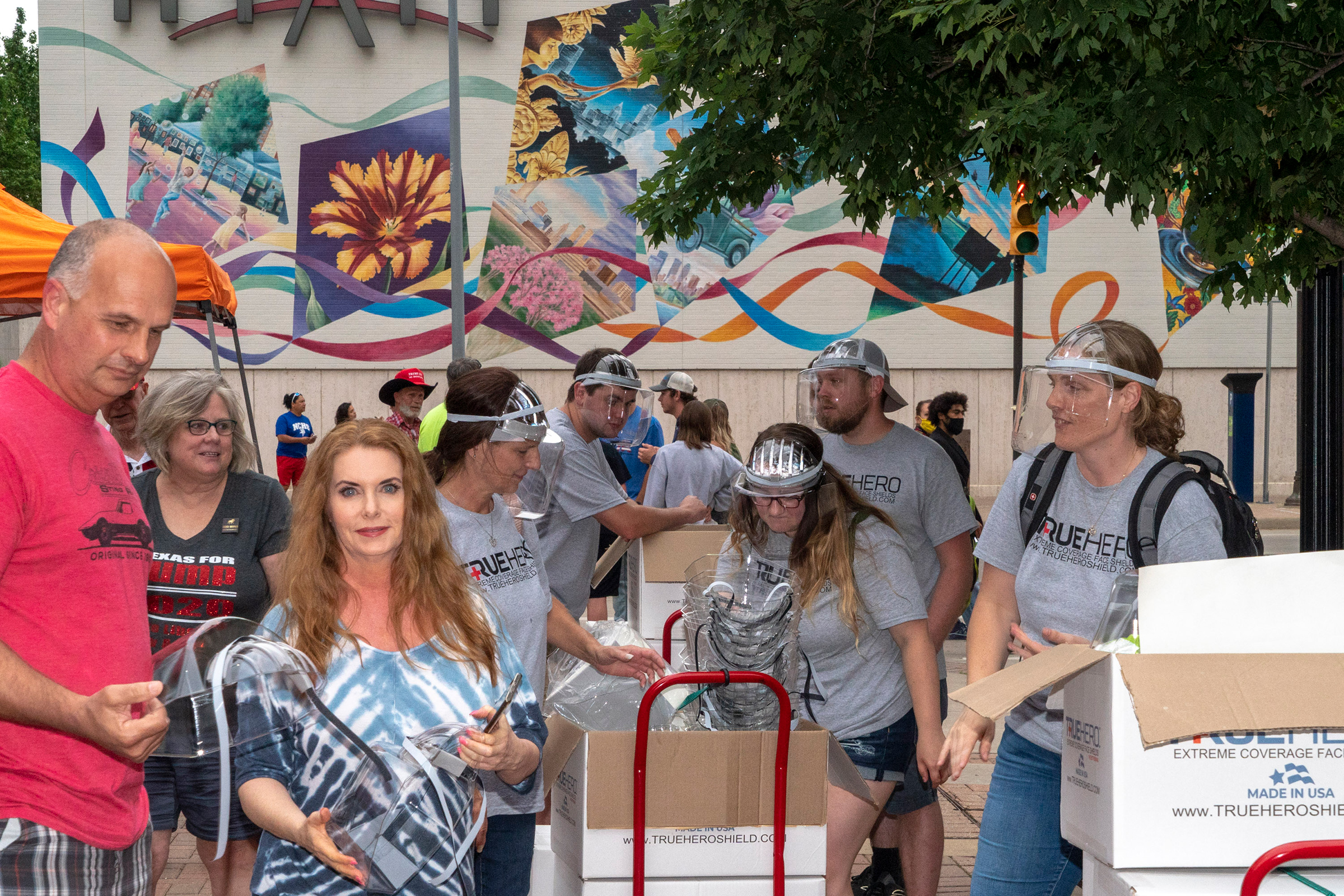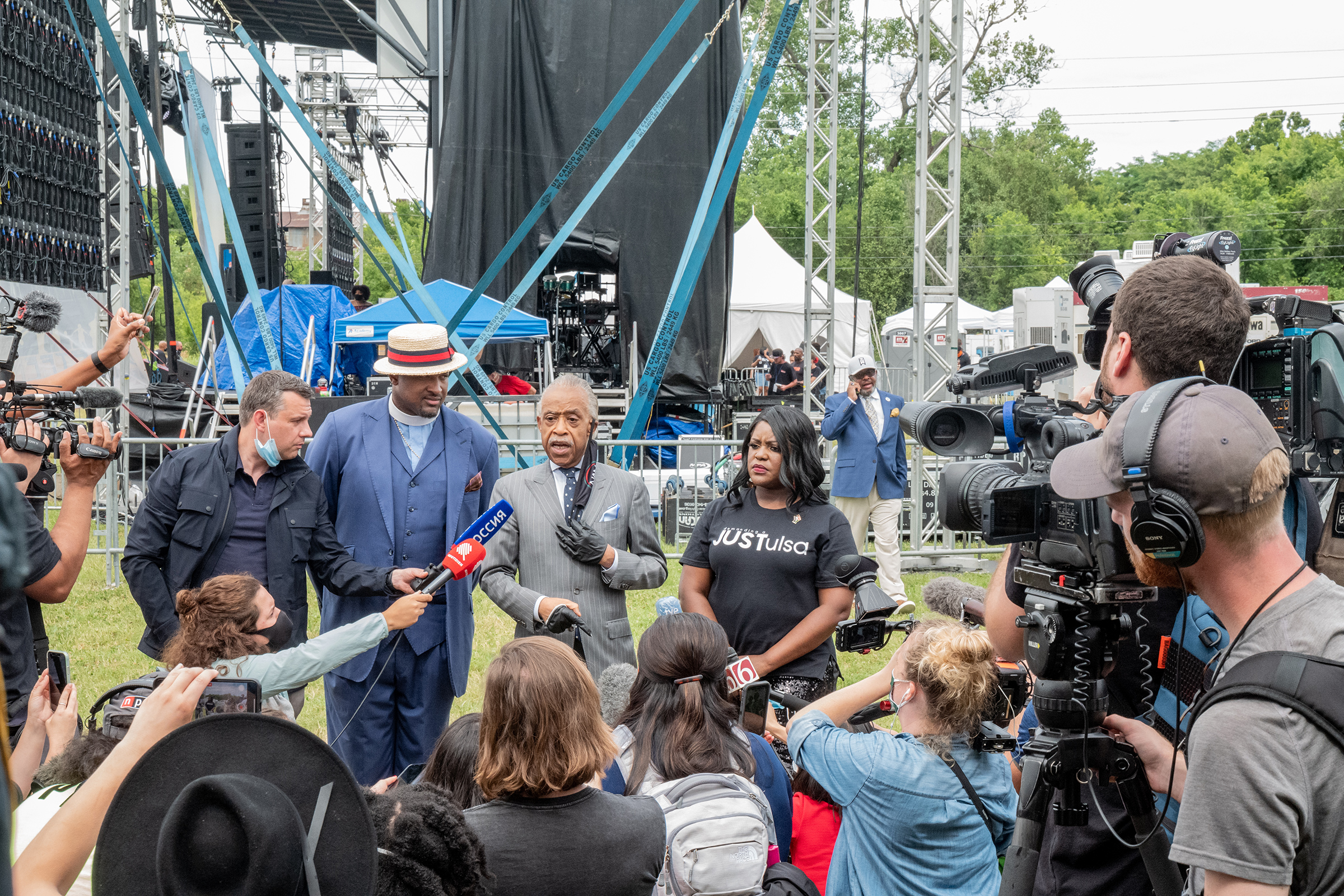
After months off the campaign trail, President Trump will re-launch his re-election bid Saturday night before a boisterous crowd. More than 800,000 supporters registered for tickets, according to his campaign manager. Many have been camped out outside the arena for days. Yet long before they arrived, the rally was enveloped in controversy because of the timing and location.
It’s one thing to cram 19,000 people into an indoor arena in the midst of a pandemic—without mandating the use of masks. It’s another to schedule the event for June 19, a date used to commemorate the delayed emancipation of American slaves, and to pick a location seven blocks from the site of the infamous 1921 race massacre in Tulsa, Okla., when white rioters, aided by Tulsa police and the Oklahoma National Guard, looted and burned more than 1,200 black homes and businesses, killing an estimated 300 people.

In the midst of a national reckoning over systemic racism. Trump’s campaign selected one of the most controversial locations and dates it could have chosen. At best, holding the rally in Tulsa once again revealed the massive blind spot Trump and his aides have when it comes to race in America. At worst, it was a deliberate provocation by a campaign and a candidate that seems determined to press on the nation’s raw nerves and deepen racial divisions as a matter of strategy.
Tulsa was chosen because it is in “America’s Heartland” and there’s “no better place” to restart the rallies, said Michael Glassner, the Trump campaign’s chief operating officer. Trump himself told the Wall Street Journal that the rally was pushed back a day after a Black Secret Service agent explained the meaning of the Juneteenth holiday to him. Trump told the Journal that he “did something good” and made Juneteenth “very famous.”
“Nobody had ever heard of it,” the President of the United States said of a holiday recognized in 47 states and the District of Columbia.
As wide-spread protests against police brutality and systemic racism push into a fourth week around the country, Trump’s response has laid bare the depth of the country’s racist legacy and added urgency to calls for a wider national reckoning. Sixty percent of white Americans and 82% of Black Americans think Trump has made the country more divided, according to a poll released Wednesday by The Associated Press-NORC Center for Public Affairs Research. The percentage of white Americans who disagree with Trump’s handling of race relations has increased from 55% in 2019 to 62% in 2020, the poll found. Optimism among Republicans is down. This month, the poll found 63% of Republicans thought the country was headed in the wrong direction, compared with 42% in May. And Trump’s own poll numbers have sagged further.
Yet while many allies concede it is hurting his re-election prospects, the President’s fomentation of racial division continues. In recent days, Trump has slapped down a push inside the Army to strip the names of Confederate officers from ten U.S. military bases, writing on Twitter that his Administration “will not even consider” renaming them. In a week when an Atlanta police officer was charged with shooting a Black man during an altercation and more localities moved to ban chokeholds and open up police disciplinary records to public scrutiny, Trump told Fox news host Sean Hannity that police officers are “under siege” and “have not been treated fairly in our country.”

Trump’s campaign defended his record on race, saying he was responsible for low unemployment among Black Americans before the COVID-19 pandemic, increasing funding for historically Black colleges and universities, and signing criminal justice reform measures into law. Trump has “built a record of success for Black Americans,” senior campaign adviser Katrina Pierson said in a statement. “As the party of Lincoln, Republicans are proud of the history of Juneteenth, which is the anniversary of the last reading of the Emancipation Proclamation,” Pierson added.
Many protesters who have taken to the streets in recent weeks say Trump’s divisive instincts have exposed the racist currents still rife in America. Levi Berlin, 23, a lifestyle and fashion photographer, has attended multiple protests in Washington, D.C., handing out snacks and water. Trump “made people like me and the millions of other people in other states that went out and protested have a reason to go out there and fight for change, because I see it now,” Berlin says of systemic racism. “It’s not just a myth. It’s not just, ‘Oh, we’re just being paranoid.’ We know for a fact. It’s there. It’s in our office. It’s running our country.”
More Must-Reads from TIME
- Cybersecurity Experts Are Sounding the Alarm on DOGE
- Meet the 2025 Women of the Year
- The Harsh Truth About Disability Inclusion
- Why Do More Young Adults Have Cancer?
- Colman Domingo Leads With Radical Love
- How to Get Better at Doing Things Alone
- Michelle Zauner Stares Down the Darkness
Contact us at letters@time.com




